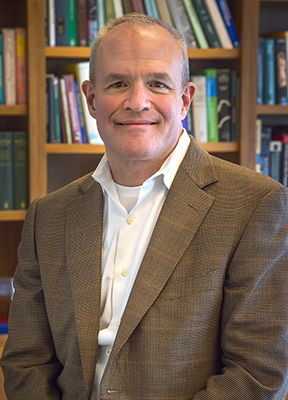Jay Keasling, a Pioneer in Synthetic Biology

Jay Keasling (University of Nebraska-Lincoln, 1986) wants to make biology easier to engineer and as a pioneer in synthetic biology, he is leading the way.
Keasling grew up on a farm in the small town of Harvard, Nebraska, raising pigs and cattle, corn and soybeans. He earned a Regents Scholarship and enrolled at his father’s alma mater, the University of Nebraska, in the fall of 1982. With plans to go to medical school, he majored in chemistry and biology. When he realized what he really loved was research, he enrolled at the University of Michigan as a graduate student and earned a Ph.D.in chemical engineering.
He moved westward for post doctorate work in biochemistry at Stanford University followed by the faculty position he’s held at the University of California - Berkeley for almost 24 years. A professor of chemical and biomolecular engineering and of bioengineering, he is also Berkeley Lab’s associate lab director of biosciences and CEO of the Joint BioEnergy Institute focused on engineering biology to produce biofuels.
In his quest to engineer biology, Keasling’s work has made a tremendous worldwide impact saving lives of those afflicted with malaria. As one of the most severe health problems in the world, malaria is a leading cause of death and disease in many developing countries, especially in tropical and subtropical areas. Half of the world’s population lives in areas at risk of malaria transmission according the World Health Organization. In 2012, malaria caused more than half a million deaths.
In the early 2000s, Keasling led a UC Berkeley research team in the development of engineered yeast microbes to synthetically produce artemisinin, a powerful anti-malarial drug. The original drug, made from a plant, typically carries a market price beyond the reach of those who need it most.
“Artemisinin has been out as an anti-malarial drug for about a decade, but it goes through periods of being too expensive and not in high enough supply so it seems that a lot of children and people who have malaria which tend to be very poor people in Africa and Southeast Asia and South America don’t have the money to buy the drug,” Keasling said. “When we took the genes out of the plant and put them into yeast it’s just like brewing beer now except rather than ethanol coming out of the yeast, this antimalarial drug does.”
The result is a reduction in both the cost and the time it takes to produce the drug. According to Keasling, about 15 million people have benefited from the synthetic artemisinin and when it’s in full swing in the next few years somewhere between 100 and 200 million will benefit from it annually.
Keasling is also working to reorder the production of energy, as his work extends deeply into finding fuel alternatives. “Using biology you can synthesize the same chemicals that you would normally get from petroleum but do so in a more environmentally friendly way,” Keasling said.
“In producing biofuels, we work on fuels that are a direct replacements, so hydrocarbons that directly replace gasoline, diesel or jet fuel. When you produce those from say, crop waste or any kind of waste material you put no additional carbon in the atmosphere because the plants that generate those fuels from took carbon out of the atmosphere when they grew. Unlike burning petroleum-based fuels where you’re adding carbon to the atmosphere, in this case you add no additional carbon so it’s generally good for the environment.”
The complexity of engineering biology means these developments take time. There are many risks and unknowns according to Keasling, but the global impact is beyond measure.
“I think biology can really solve a huge number of problems we have in getting affordable therapeutics, carbon neutral and environmentally friendly fuels, producing chemicals that won’t damage the environment that might biodegrade after we throw them away,” said Keasling.
